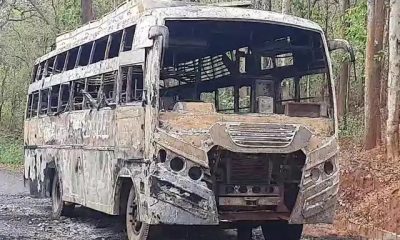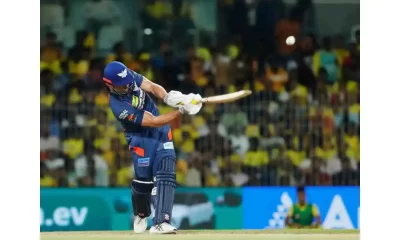India News
Viral: Man climbs transmission tower after in-laws refuse to send wife | Watch
After the man got down from the tower, the team of Bhilai Police took Hori Lal with them to the police station.

A very dramatic but filmy scene can into light in Ganiyari village of Chhattisgarh’s Bhilai, when a man climbed a transmission tower to prove his point. Got reminded of a Bollywood film? Yes! the Bhilai man took inspiration from Sholay’s Dharmendra and did something bizarre.
Notably, the man identified as Hori Lal had visited his in-laws’ place to take his wife home along with him. But to his disappointment, the father of his wife refused to send his daughter. This did not only make him furious but the man climbed up the 75-feet high-tension tower to pressurize his in-laws.
Read Also: Elderly man counting his daily earnings leaves the internet teary-eyed, watch video here
Checkout the video here:
Later, the regional police reached the spot, and persuaded the man to come down. But to their disappointment the man refused to come down, until his parents-in-law agreed to his demands. However, when the cops assured him that they would send his wife back, he got down from the tower.
After the man got down from the tower, the team of Bhilai Police took Hori Lal with them to the police station. Later his in-laws with the wife were called to the police station for questioning. Reportedly, the reason behind father-in-laws refusal is still unknown. But the police is trying its best to send the couple home.
However, as soon as the video went viral on social media, tweeple got reminded of Dharmendra’s drunken act from 1975 Bollywood Sholay. In the film also, Dharmendra liked Hema Malini and her dadi refused to marry her with the film lead. But after Dharmendra takes over a water tank tower and blackmails the he’ll jump off the tower if he doesn’t get to marry Malini.
As expected, dadi gets pressurized and agrees to marry her grand daughter with the lead of Sholay. And seems like the Bhilai man also took inspiration from the1975 movie.
Moradabad Gangrape: Police deny rape, parents state victim has mental health problem
2024 Lok Sabha Elections
PM Modi says Congress leaders consider themselves above Lord Ram
PM Modi slammed Congress during a rally in Chhattisgarh, ahead of the Lok Sabha elections 2024
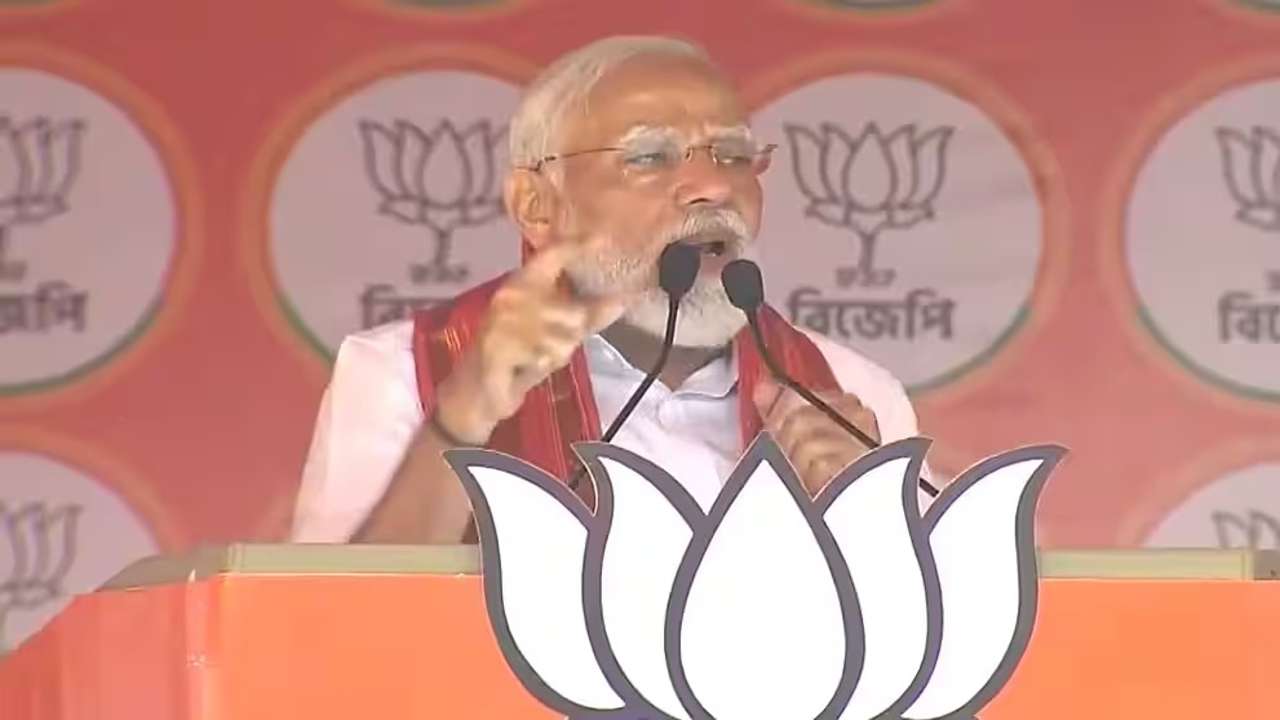
Prime Minister Narendra Modi slammed the Congress party for declining to attend the pran pratishtha ritual at the Ayodhya Ram temple on January 22 this year.
The prime minister said Congress leaders consider themselves above Lord Ram and denied invitation for Pran Pratishtha at Ram Temple, while speaking at a rally in Janjgir-Champa, Chhattisgarh. The PM question the people present at the rally that is it not a disrespect of Mata Shabri? Congress leaders inclination toward appeasement politics runs in their family.
For political appeasement, they won’t think twice about stealing the rights of Adivasis, the poor, and Dalits. Poor, young, and women are BJP’s top priorities, Modi said.
PM Modi criticized the Congress again during the rally for claiming that the BJP would alter the constitution.
The leaders of Congress recite the same old phrases whenever an election is about to happen, the PM said. He also said they claim that if the BJP wins power, it will renounce the constitution and abolish reservations. For how long will you continue selling lies?” he asked.
The prime minister continued saying that nobody can change the Constitution, even if Dr. Babasaheb Ambedkar were to come and insist on it, it wouldn’t happen.
Those in the Congress threaten to break Modi’s head. Nobody can harm Modi as long as the mothers and sisters of this county stands by him. These mothers and sisters are Raksha Kavach, Modi remarked.
The prime minister further attacked the Congress after Viriato Fernandes, the party’s candidate for South Goa, asserted that Goa was forced to adopt the Indian Constitution.
Referring to his conversation with Congress leader Rahul Gandhi ahead of the 2019 Lok Sabha elections, Fernandes said he had told him, when Goa was liberated in the year 1961, the Indian Constitution was forced upon us.
The prime minister said, Congress candidate from Goa says Constitution was forced upon Goans; is this not an insult of Ambedkar and Constitution.
2024 Lok Sabha Elections
Amit Shah says neither Congress nor Trinamool chief Mamata Banerjee can interfere with CAA
Amit Shah revealed the BJP’s target for West Bengal and said they have set a target of winning 35 Lok Sabha seats from West Bengal.
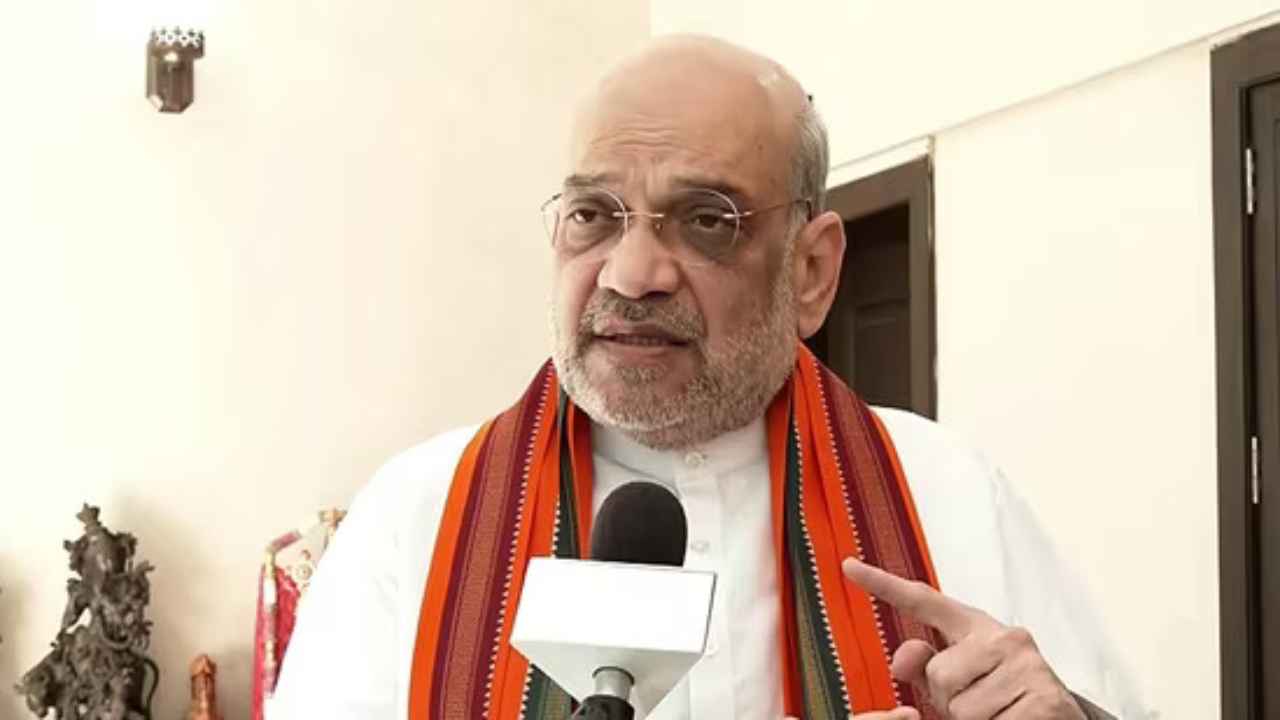
Union home minister Amit Shah on Tuesday said neither Congress nor Trinamool Congress chief Mamata Banerjee can interfere with the Citizenship Amendment Act (CAA). He was speaking at the Karandighi rally in West Bengal where he also made the prediction as to how many seats BJP will win in the Lok Sabha elections in West Bengal.
The union home minister asked the masses to cut the money culture. Amit Shah revealed the BJP’s target for West Bengal and said they have set a target of winning 35 Lok Sabha seats from West Bengal. In 2019 Lok Sabha elections the BJP had won 18 out of 42 seats in West Bengal. He asked Mamata Banerjee, what problem will she have if the Buddhist and Hindu refugees from Bangladesh get citizenship in India?
Shah further added if the people of West Bengal want to stop infiltration in the state, then they will have to make Narendra Modi the Prime Minister of India again. He said if the people of West Bengal want to free Bengal of violence, stop infiltration in the state, give citizenship to refugees, to stop disrespecting mothers and sisters of the state as it happened in Sandeshkhali, then only way is to make Narendra Modi the Prime Minister.
Amit Shah said that PM Modi had sent Rs 7 lakh crore to West Bengal but the TMC indulged in corruption. He said one can see the houses of Trinamool Congress leaders; 10 years ago they used to live in a hut, moved on cycle and now all of them have 4-storey houses and move around in big cars. He added this is the money of people of West Bengal.
The Citizenship Amendment Act (CAA), will make it easier for non-Muslim refugees from Afghanistan, Pakistan and Bangladesh to get Indian citizenship, was enacted in 2019. But the rules were notified in March this year by the Centre.
2024 Lok Sabha Elections
Prime Minister Narendra Modi says listening to Hanuman Chalisa under Congress rule is a crime
PM Modi was addressing an election rally in Rajasthan’s Tonk-Sawai Madhopur, on a day as India celebrates Hanuman Jayanti.
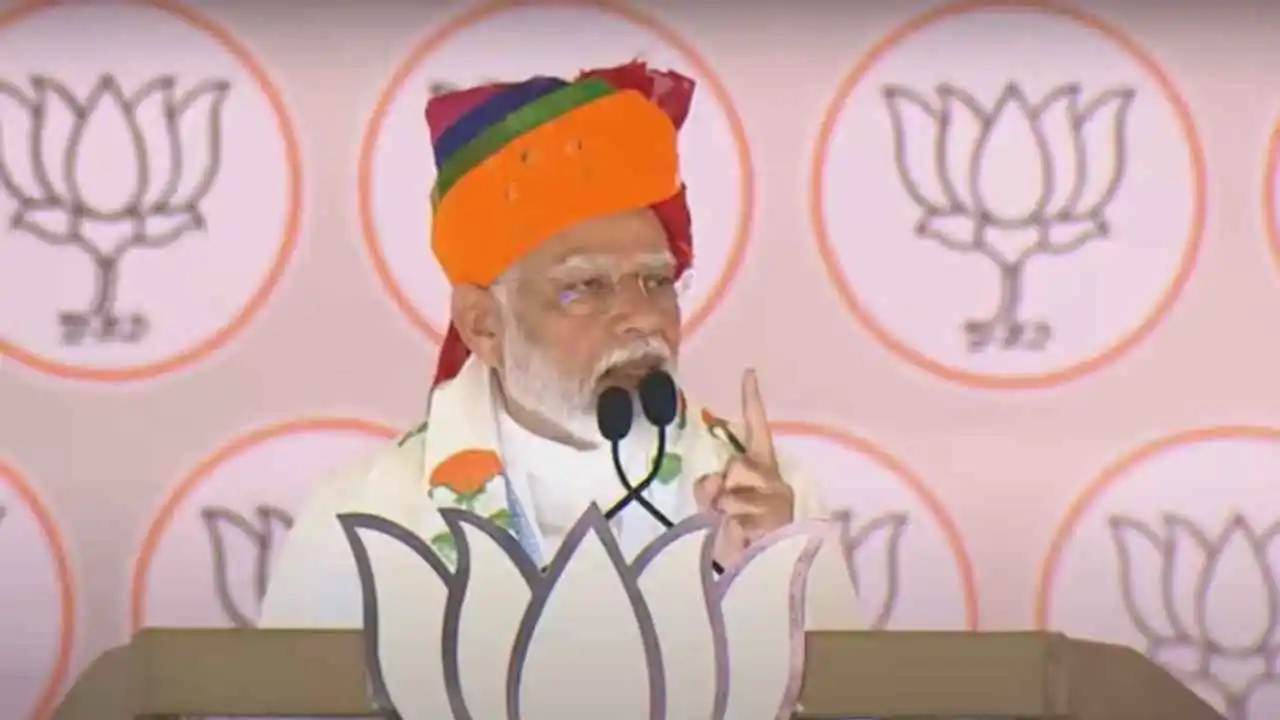
Prime Minister Narendra Modi on Tuesday hit out at the Congress and said even listening to Hanuman Chalisa has become a crime under the party’s rule. The Prime Minister also said it was difficult to follow one’s faith under the party and accused it of hatching a deep conspiracy to snatch people’s wealth and distribute it among selected few people in the society. PM Modi was addressing an election rally in Rajasthan’s Tonk-Sawai Madhopur, on a day as India celebrates Hanuman Jayanti.
PM Modi said in a state like Rajasthan where people chant Ram-Ram, Congress banned Ram Navami. He reffered to the redistribution of wealth remarks he had made during a rally in Rajasthan’s Banswara on Sunday and said it has angered the Congress and INDI Alliance so much that they have started throwing abuses at Modi everywhere.
The Prime Minister said that Congress has written in their manifesto that they will survey the wealth. He said the Congress leadership had said in a speech that an X-ray of wealth will be done. He added when Modi exposed the secret then the hidden agenda came out and this has left the people trembling. PM Modi further added that the Congress party has played with the Constitution of the India.
He said when the Constitution was drafted, reservations based on religion were opposed, so that Scheduled Casts (SC), Scheduled Tribes (ST) and Other Backward Classes (OBC) could get protection. He said former Prime Minister Dr Manmohan Singh had said that Muslims have the first right to the country’s resources. The prime minister further added Congress’s ideology has always been of appeasement and vote bank politics. He said stones would still be pelted in Jammu and Kashmir, and enemies would still be cutting off the heads of India’s soldiers had Congress been in power.
-
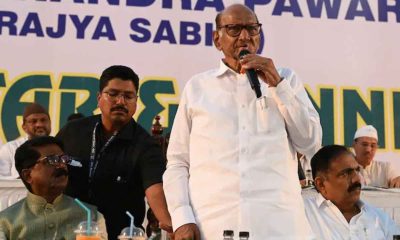
 2024 Lok Sabha Elections24 hours ago
2024 Lok Sabha Elections24 hours agoNCP (SP) leader Sharad Pawar says Prime Minister Narendra Modi is trying to create fear like Russian President Vladimir Putin
-

 Entertainment23 hours ago
Entertainment23 hours agoMithun Chakraborty, Usha Uthup honoured with Padma Bhushan
-

 Entertainment21 hours ago
Entertainment21 hours agoFan jumps on stage and hugs Atif Aslam during concert, video goes viral
-
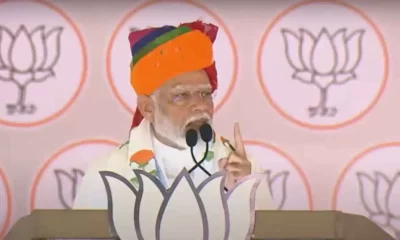
 2024 Lok Sabha Elections23 hours ago
2024 Lok Sabha Elections23 hours agoPrime Minister Narendra Modi says listening to Hanuman Chalisa under Congress rule is a crime
-

 Entertainment19 hours ago
Entertainment19 hours agoManisha Koirala reveals reason for rejecting Dil To Pagal Hai, says regrets that decision
-
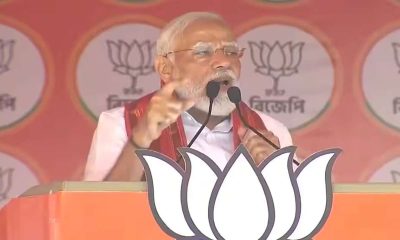
 2024 Lok Sabha Elections18 hours ago
2024 Lok Sabha Elections18 hours agoPM Modi says Congress leaders consider themselves above Lord Ram
-
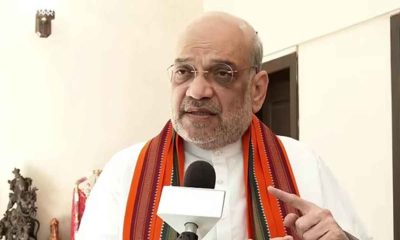
 2024 Lok Sabha Elections20 hours ago
2024 Lok Sabha Elections20 hours agoAmit Shah says neither Congress nor Trinamool chief Mamata Banerjee can interfere with CAA
-

 Trending19 hours ago
Trending19 hours agoDolly Chaiwala sips coffee atop Burj Khalifa, video goes viral







